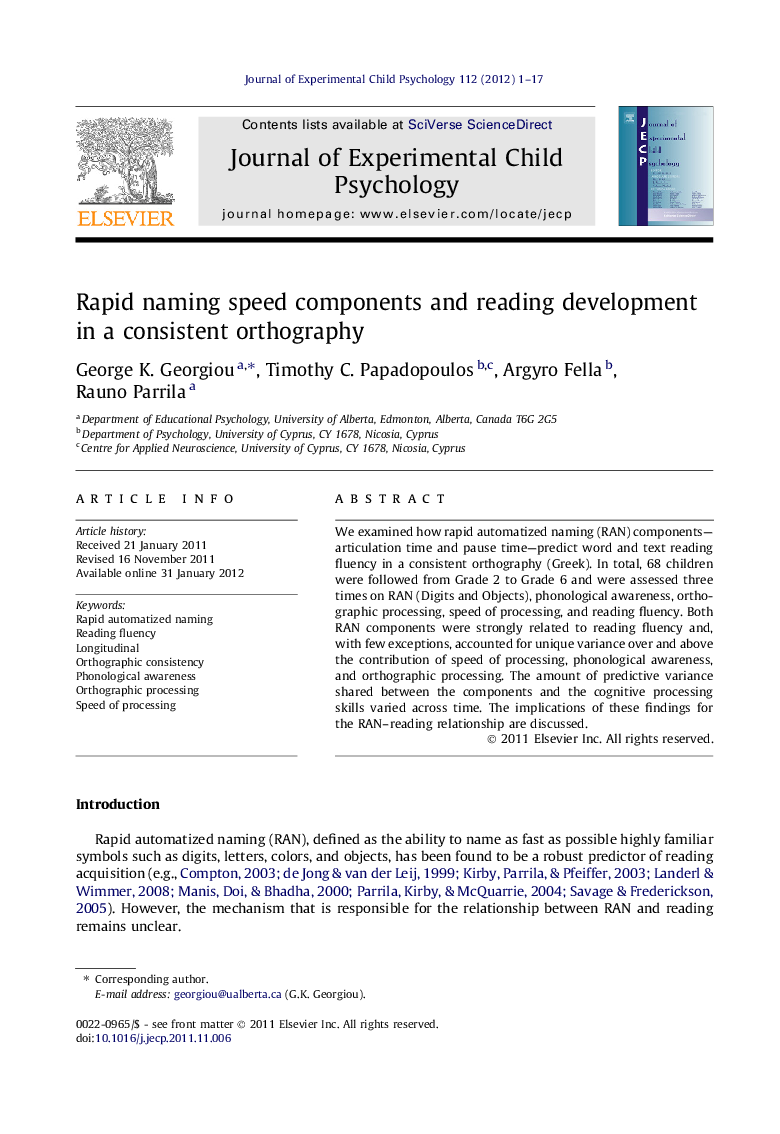| Article ID | Journal | Published Year | Pages | File Type |
|---|---|---|---|---|
| 918180 | Journal of Experimental Child Psychology | 2012 | 17 Pages |
We examined how rapid automatized naming (RAN) components—articulation time and pause time—predict word and text reading fluency in a consistent orthography (Greek). In total, 68 children were followed from Grade 2 to Grade 6 and were assessed three times on RAN (Digits and Objects), phonological awareness, orthographic processing, speed of processing, and reading fluency. Both RAN components were strongly related to reading fluency and, with few exceptions, accounted for unique variance over and above the contribution of speed of processing, phonological awareness, and orthographic processing. The amount of predictive variance shared between the components and the cognitive processing skills varied across time. The implications of these findings for the RAN–reading relationship are discussed.
► We examined how RAN components predicted reading fluency in Greek. ► Both RAN components accounted for unique variance in reading fluency. ► RAN components shared most of their predictive variance with speed of processing.
